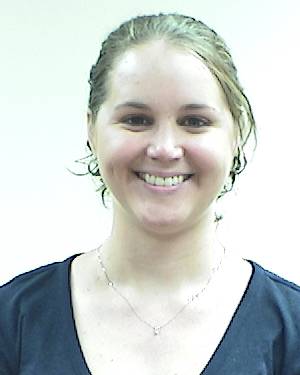In this edition:
CME Leadership/Medical Updates
Consent for Medical Treatment Law Changes – Summary and FAQs
The attached
memo provides a summary and clarifying information regarding changes in state law surrounding consent for medical treatment. This information is consistent with information provided last week during Town Halls about Harris Health's consent policy. The Town Hall
slides and
policy are attached for your review and convenience.
Masking Strongly Encouraged
Harris Health remains committed to protecting its patients, caregivers, visitors, employees and the public. We have seen an increase in staff requiring quarantine and patient hospitalizations, and will continue to monitor transmission rates and hospitalizations with the ability to quickly reinstate visitation restrictions and masking practices if required to safeguard our staff, patients and visitors.
Harris Health now strongly encourages all staff to wear masks, as a response to the ever-changing virus that results in COVID-19 infections.
While masks are not required in all settings, masks (and appropriate PPE) continue to be required for workforce members, patients and visitors, when:
- Visiting or caring for known COVID-19 patients, or patients under droplet or airborne precautions
- Experiencing respiratory symptoms like flu, coughs, etc.
- Visiting or caring for oncology units in Ben Taub Hospital, LBJ Hospital and ambulatory clinics
Flu Vaccine Compliance
Our commitment to quality, staff and patient safety starts with reducing the spread of the flu virus. The single best way to reduce the risk of seasonal flu and it's potentially serious complications is to get vaccinated each year.
All workforce medical staff, fellows, residents, and students are required to receive a flu vaccine or obtain a qualified exemption by Nov. 30, 2023.
Harris Health Employees, please follow:
Step 1: Please login to your ReadySet account (
Click Here) and complete the Seasonal Flu Immunization Survey. This survey MUST be completed prior to receiving your flu vaccine or submitting flu documentation via ReadySet.
Step 2: Select the option below that works best for you.
-
I
already received the seasonal flu vaccination and I can provide documentation.
- Employees who receive the Flu vaccine somewhere other than Harris Health OHS are required to upload documentation via ReadySet.
- It is the employee's responsibility to upload documentation regarding receiving the flu vaccine to ReadySet. A store receipt is not acceptable proof of vaccination.
Click here to learn how documentation can be uploaded in ReadySet.
-
I am requesting an exemption from the seasonal flu vaccination for medical or religious reasons.
- You may access Exemption Forms while completing your Seasonal Flu Immunization Survey via Ready Set.
QUALIFIED VACCINE EXEMPTION FORM 285107
Requests for exemption must be submitted no later than Wednesday, Nov. 1, 2023, to allow for review and approval. Documents submitted after this date may result in non-compliance with the
Vaccine Preventable Disease Policy 3.55.00.
Non-Harris Health Employees:
Please provide documentation to Medical Staff Services indicating you have received the vaccination or have an approved medical or religious exemption.
Harris Health will accept any of the following documentation that includes your name as evidence of flu vaccination:
-
An After-Visit Summary (AVS) from a healthcare facility indicating that a flu vaccine was administered.
- A payment receipt from a healthcare facility indicating that a flu vaccine was administered.
- A vaccine record from a healthcare provider including a primary care physician or Occupational Health Program (OHP).
- A patient log from an OHP-sponsored vaccination fair that includes the provider's name and vaccine lot number.
Individuals that do not submit required documentation by the deadline will have Epic access inactivated and may not provide any patient care including house staff supervision.
Medical Staff Recognition from Grateful Patients
 Leigh Erin Cunningham, MD
Leigh Erin Cunningham, MD
Ben Taub Hospital Emergency Department
"Dr. Cunningham had a great bedside manner. She's an amazing psychiatrist. Very charismatic."
 Philip Carl Johnson III, MD
Philip Carl Johnson III, MD
Thomas Street at Quentin Mease Health Center
"Everything was fantastic! Dr. Johnson went above and beyond. The nurses and everyone at the Thomas Street facility are so amazing. They listened to all of my Shenanigans and all my small talk. It was just an overall positive experience. I came out better than I did when I went in the office, not just in regard to my medication but in regard to just having someone that can sit with me and interact with me. It was stimulating and it was a feel good moment and they did an amazing job. I would just like to express my gratitude and do whatever I can to give them a good review. They deserve it, and God is good."
 Douglas James Stanley, MD
Douglas James Stanley, MD
Lyndon B. Johnson Hospital Emergency Department
"Dr. Stanley has great bedside manner. He will make an awesome example for others to follow."
Quality and Safety Updates
 Health Informatics, Data Science and IT Updates
Health Informatics, Data Science and IT Updates
Updated American College of Radiology guidelines
The bottom line is that
eGFR screeningis no longer needed prior to routine gadolinium contrast administration, except in two specific circumstances:
- Specialty Eovist study for liver/biliary tree (due to the class of gadolinium used)
- Cardiac MRI with contrast (as a double dose is the preferred imaging method)
With this change, it is only when ordering one of these two exam types that the ordering provider would see an alert in Epic. Fewer lab visits for patients means a utilization advantage and should certainly be a patient satisfier as well!
One-on-One Epic Training
Did you know that you can get one-on-one training for Epic with a member of the IT Education team? See the
attached document for more information or email TrainIT_@harrishealth.org to get more information.
Epic Webinars/CME Credit
Epic offers free webinars that focus on tips and tricks to be more efficient in Epic and you can get CME credit for attending!
These are open to any provider who sees patients either inpatient or outpatient. APPs, residents, fellows, and attendings are all welcome! Please see the
attached document for more instructions on dates/times and how to register.
Changes to IP DNR Order
To align with the changes to state law regarding who can consent to change the status of the patient to DNR, there are changes to the current IP DNR Order that became effective Sept. 1, 2023. (
DNR Order Changes)
Medical Affairs Updates
Our top priority in the Medical Affairs Department is to deliver unparalleled assistance to our medical staff. Kindly do not hesitate to reach out to us should you have any questions or concerns.
Annual Education for all Medical Staff and Trainees
Annual Medical Staff Education for all Medical Staff and Trainees (Faculty, Advanced Practice Professionals, Residents, Fellows and Students) at Harris Health must be completed for our compliance with regulatory requirements.
Please complete the Harris Health System Medical Staff Annual Mandatory Education via the Learning Management System (SABA) by November 15, 2023.
If you have already completed Annual Medical Staff Education in July/August 2023, please disregard this memo. If not, please follow the instructions below:
-
Open Chrome
- Type in the address bar or click https://hhs.sabacloud.com/
- Enter your (Harris Health) User ID and Password.
- Once logged on, go to the Browse field (upper right hand side of the screen), type Onboarding/Annual Medical Staff. When the course details page displays, click the “Launch" button.
- Indicate that you want to “Retake" the course.
- Confirm the course is now appearing in your enrollments by viewing your dashboard or navigating to My Learning/Enrollments.
- Complete the Annual education manual, and answer the education assessment quiz (80% required to pass).
Training can be completed on your mobile device. If you have any questions or require additional information, please contact Medical Staff Services at 713-873-2309.
Research Corner
 Erikka L. Washington, MD
Erikka L. Washington, MD, Anesthesiology, Critical Care & Pain, is conducting a prospective randomized controlled trial to prospectively and randomly compare elapsed time from initiation of induction to the first airway intervention in patience considered high risk for hypoxia (BMI greater than or equal to 35), or documented sleep apnea. The study team will also document the incidence, duration, and severity of oxygen desaturation between a nasal mask with nasal positive airway pressure (PAP) versus standard care (face mask) during Propofol-based sedation for colonoscopy in an ambulatory surgical center. The study could possibly provide proof, that Nasal Canula CPAP device, may provide superior oxygen saturation in this patient population, than traditional face mask.
 Eva Clark, MD, PhD
Eva Clark, MD, PhD, Medicine: Tropical Diseases, is evaluating Chagas disease screening, diagnosis, and management in the U.S. to improve U.S. healthcare provider knowledge of Chagas disease and improve the management of chronic Chagas disease in the U.S. An estimated 200,000 to 300,000 people living in the U.S. have chronic Chagas disease, which is caused by infection with the protozoan parasite Trypanosoma cruzi. Most individuals with Chagas disease are immigrants from Latin America, though, as the Triatomine vector is endemic in the Southern United States, autochthonous transmission can occur. Unfortunately, many U.S. healthcare providers are not familiar with Chagas disease, thus most U.S. cases go undiagnosed or have a delayed diagnosis. As 20-30% of people infected with T. cruzi go on to develop cardiac and/or gastrointestinal sequelae, it is important to screen and treat at-risk individuals.
 Ravi Ghanta, MD,
Ravi Ghanta, MD, Cardiothoracic Surgery, is exploring the development of Artificial Intelligence (AI) as a surgery outcome and risk predictor. AI has been increasingly utilized within medicine to increase the efficiency and efficacy of provided care. This began in the field of radiology, where AI took the form of computer aided detection (CAD) software now incorporated into the routine use in mammography. CAD, and artificial neural networks (ANN) have become the two leading forms of AI utilized in medicine. ANN in particular are useful in medicine for their ability to reveal non-linear relationships among large datasets. It is thought that the application of AI within the field of surgery could significantly increase positive outcomes in reducing death and morbidity.
Clinical Documentation Improvement
Healthcare Humor
Wellness Moment: “Find the Positive" Try to find three to five things that happened during the day that you enjoyed. This will help switch your focus from things that may have caused stress to things that bring you joy and gratitude.
Thank you for all that you do each and every day. We hope you have a safe and fabulous week!